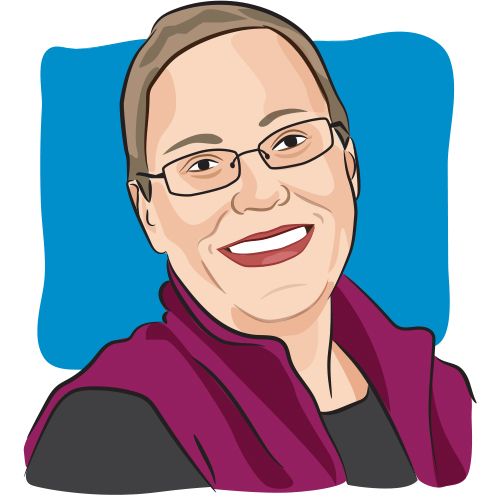Blog
Article
Knowing the Signs of Metastatic Breast Cancer
Author(s):
Recurrence is common enough that all of us need to act on potential symptoms.

Sometimes it’s impossible to remember what my life was like before cancer. After all, I’ve been living with metastatic breast cancer (MBC) for over nine years and have met — and become friends with — many others with MBC.
Most of these “MBC friends” were once early-stage breast cancer survivors whose cancer recurred as metastatic. This happens surprisingly often with breast cancer; estimates put it at 20% to 30% of early stage eventually becoming stage 4 (aka metastatic).
This percentage is one of the first things I learned after my MBC diagnosis. It didn’t apply to me, since I was never treated for early-stage breast cancer, but I heard it everywhere in MBC circles and support groups. Most of my friends whose breast cancer returned as metastatic had been told they were cured and were either unaware of or had forgotten about the possibility of the cancer returning to other places in their bodies.
Right now, someone close to me is in that situation. She finished early-stage treatment many years ago and had stopped thinking about the risk breast cancer posed. When the pain became debilitating, she understandably ascribed it to aging, arthritis, joint issues and more. From what I can tell, her doctors did the same for too long. It didn’t help that, like me and a lot of other people, she didn’t like to talk about the pain she was experiencing. One of her other friends calls it “white knuckling,” which is a perfect description of how I sometimes “power through” my treatment side effects.
But if there are two things I’ve learned in my years living in treatment for MBC it’s that you have to know your body and you have to be honest with your doctors about what you’re experiencing. When you know how common it is for breast cancer to return to other places in your body, it’s possible to ask your doctor to consider if the -cancer has returned.
That’s why the “20% to 30% of early-stage recurs as stage 4” statistic is so important to keep in mind. After all these years, it is one of the first thoughts in my mind when I listen to someone who had early-stage breast cancer talk about how cancer’s behind them. Everyone I know with MBC could give you all the stats on metastatic recurrence but people with an early-stage diagnosis urgently need to know them too, so that they can remind everyone on their healthcare team of their breast cancer history.
Right now, there’s no way to prevent metastases and there is no definitive understanding of who is most likely to have a metastatic recurrence. And, while most people with early-stage breast cancer don’t become stage 4, it can be helpful for treatment efficacy and for quality of life to find metastases early.
Symptoms of MBC, courtesy of breastcancer.org, may include:
- Back, bone or joint pain that does not go away
- Difficulty urinating (either incontinence or not being able to go), which can be a sign that the cancer is pinching nerves in your back.
- Numbness or weakness anywhere in your body
- A constant dry cough
- Shortness of breath or difficulty breathing
- Chest pain
- Loss of appetite
- Abdominal bloating, pain or tenderness
- Constant nausea, vomiting, or weight loss
- Jaundice (a yellow tinge to the skin and whites of your eyes)
- Severe headaches
- Vision problems (blurry vision, double vision, loss of vision)
- Seizures
- Loss of balance
- Confusion
No one wants to acknowledge that being a survivor may include a cancer recurrence. I remember my own mammogram when the technician said “Don’t stick your head in the sand”— a harshly-worded wake-up call for me about what was ahead. I didn’t want to hear it but maybe it is one reason I’m alive today.
For more news on cancer updates, research and education, don’t forget to subscribe to CURE®’s newsletters here.




